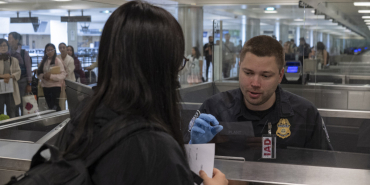‘I Felt Invisible’: A Kenyan Student’s Struggle With Loneliness in Australia

A Kenyan student studying in Adelaide narrowly avoided deportation after facing severe emotional and academic challenges during her time at an Australian university.
At 19, she left Nairobi for Adelaide with hopes of academic progress and personal growth. However, the transition was far more difficult than expected. Raised in a conservative, religious home where social interaction was limited to structured spaces like church and school, she was suddenly immersed in a culture shaped by individualism and informal social norms.
Her first months on campus were marked by loneliness. In lecture halls and cafeterias, the absence of other Black students deepened her sense of isolation. Even when she did see someone who resembled her, the fast pace of university life left little opportunity for meaningful connection.
“Seeing someone who looked like me felt like a rare event,” she recalls.
Cultural differences went beyond race. In Kenya, she was used to a communal way of life where people looked out for each other. In Australia, she found that people tended to keep to themselves.
This unfamiliar social environment, combined with assumptions about her language skills and background, made it difficult to form new relationships. She also lacked awareness about mental health.
At the time, conversations around emotional wellbeing were limited, and she did not have the tools to understand or cope with her growing homesickness. As her mental health declined, so did her academic performance. She began missing classes and eventually withdrew from her studies, placing her visa status at risk.
Her situation changed when a stranger recognised the signs of distress and stepped in. That person not only offered support but also advocated on her behalf. Their actions helped prevent her deportation and allowed her to regain control over her future.
Now sharing her experience to support others, she highlights the need for stronger institutional and social support systems for international students. She plans to share more about the moment that turned everything around, and how a single act of compassion helped her rebuild her life in Australia.














Comments
Nalingi Yo Nairobi: How…
Permalink
Nalingi Yo Nairobi: How Kenyans Fell in Love with a Language They Don’t Understand
You’ve probably witnessed it. You’re at a wedding, and Mario by Franco comes on. The aunties rise. The uncles, joints already creaking, begin to shuffle and slide like they’re in a dance battle with gravity. The DJ raises the volume. Suddenly, the crowd breaks into a chorus:
“Mariooo… ooooooh!”
Beautiful. Emotional. Completely linguistically inaccurate.
When Nairobi Got Roasted (and Still Danced)
Take M’bilia Bel’s classic Nakeyi Nairobi. Kenyans loved it. They danced to it at weddings, blasted it in matatus, and sang along like she was welcoming them to Nairobi with open arms.
Except… she wasn’t.
Buried in the melody was the line: “Heard that you’ve been treated badly, dunia.” Sis was shading us. Gently. Elegantly. In harmony. And what did we do? We turned it into a national banger. Later, she even remixed it to praise Moi. So Nairobi got dissed and praised with the same song, and Kenyans danced through both versions like nothing happened.
Honestly, Lingala might be the only genre where you can be musically roasted in a foreign language… and then ask for an encore.
Why Lingala Exploded in Kenya
Comedy aside, there were deeper reasons Lingala took root in Kenya during the 1980s and 90s:
Suppression of vernacular music: The Moi regime censored ethnic-language songs, pushing urban audiences toward “neutral” Lingala.
Congolese bands in Nairobi: Les Mangelepa, Orchestre Virunga, and others played live shows almost nightly.
Nightclubs and matatus: Lingala became the soundtrack of nightlife and daily commuting.
Cassette culture: Cheap tapes spread it across the country.
Dance and fashion appeal: Sebene dance breaks + sharp dressing = instant cool.
Star power: Franco, Tabu Ley, Koffi, Papa Wemba — household names and cultural icons.
In short, Lingala filled a vacuum: vibrant, unifying, stylish, and safe. The perfect soundtrack of Kenyan urban life.
A Dictionary of False Friends
Some Lingala words sounded suspiciously familiar to Swahili or Kikuyu ears, which created endless comedy.
Pasi — In Swahili, an iron box. In Lingala, suffering. So “pasi mingi”? To your auntie, it meant “lots of iron boxes.”
Ngai — In Kikuyu, God. In Lingala, me. So Mbilia Bel’s “Ngai na lingi yo” (I love you) was misheard by some Kikuyus as “God did it again.” The youth kept dancing, while church elders drafted a sermon.
To be fair, both Swahili and Lingala are Bantu languages, sharing roots. Words like ndoto (dream), mesa (table), kiti (chair), nzala (hunger), mai (water), moto (fire), mbula (rain/year), balabala (road), and lelo (today) overlap across the languages. Sometimes the meanings align. Sometimes they wander off, creating “false friends” and endless matatu jokes.
Love Without Translation
But here’s the beauty: none of this confusion stopped the love affair. Kenyans didn’t need to understand Lingala to feel it. The riffs, the flowing melodies, the hypnotic sebene breaks — those were enough.
On the dance floor, tribal boundaries dissolved. Nairobi became a mini-United Nations of rhythm. A Kikuyu uncle and a Luo auntie could lock step to Tabu Ley without debating politics. In those moments, Kenya was Bato Moko — One People.
Still the Soundtrack of the City
Decades later, Lingala and rhumba still rule Nairobi’s nightlife, especially for Generation X. Step into a beer joint in Umoja or a garden party in Kisumu, and Franco is still competing with Diamond Platnumz for speaker time.
And it’s not just Kenya. In Paris and New York, where African diaspora communities gather, Lingala still fills the dance floors.
It’s the music that outlived cassette tapes, matatu graffiti, and even Moi’s regime.
Mokomatic Africa
In the end, Lingala in Kenya wasn’t about understanding—it was about feeling. The words may have been mysterious, the pronunciations mangled, and the translations suspect, but the rhythm carried everyone.
And maybe that’s the lesson. In a continent often divided by tribalism, borders, and politics, music finds the common pulse. That’s Mokomatic: a winning mindset, a shared vibe, a unity beyond words.
And while we’re confessing — “Mokomatic” wasn’t even a word until we invented it. But now it is, and doesn’t it already feel like it belongs? Derived from moko, meaning “one,” it carries the spirit of togetherness that Lingala music has always brought to Kenyan dance floors.
One People. One Love. One God.
Or, as the Lingala chant goes (okay, we just made this up also, thanks for playing along):
Bato Moko. Bolingo Moko. Nzambe Moko.
By Mahugu Nuthu
Add new comment